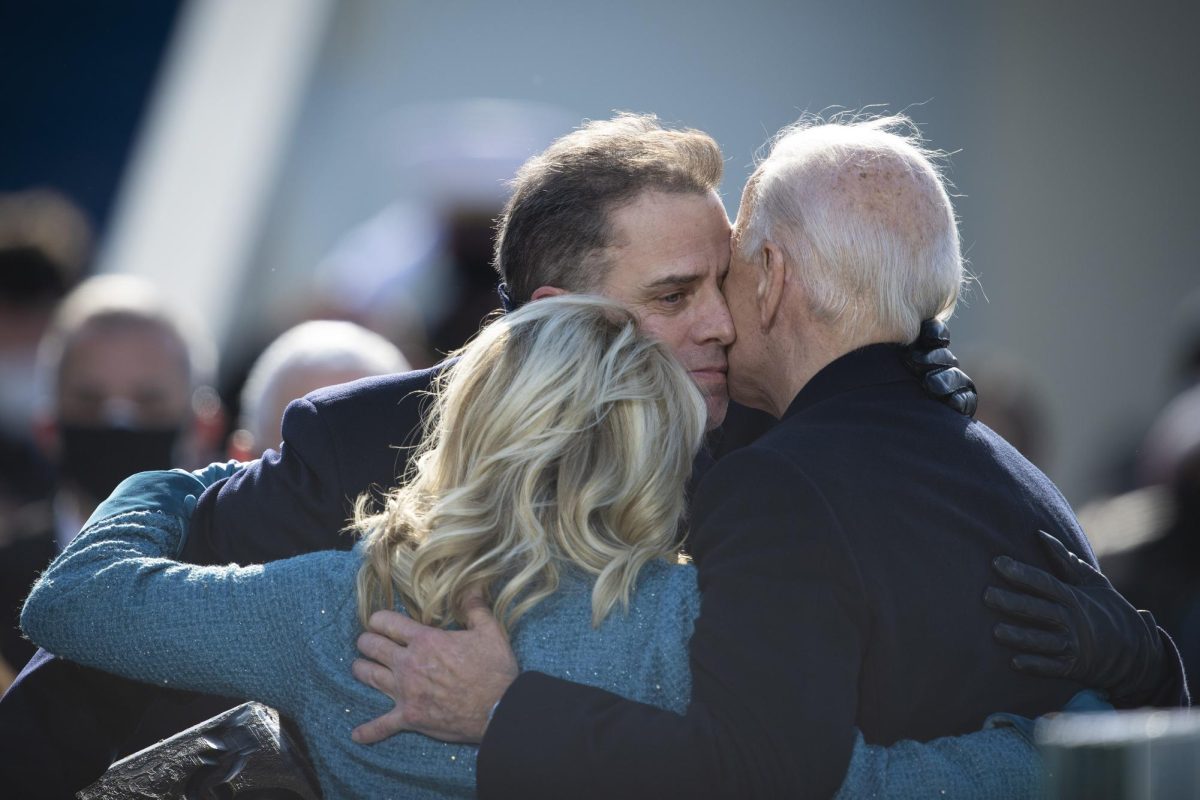Presidential pardons are an executive power that have always confused me. Dating back to George Washington’s presidency, pardons have been embedded in the Constitution. It enables presidents to, in whole or in part, rescind or modify the penalties assigned to convicted criminals. While pardons do not imply innocence, they represent a recognition of forgiveness.
Despite being commonly viewed as a tool for justice, a closer look into the history of presidential pardons reveals an unsettling lack of fairness. When I discovered that both current President Donald Trump and former President Joe Biden have pardoned their own family members, I wondered what societal discourse from both parties must have ensued from those decisions. After all, the president already has a significant amount of unchecked authority. Granting clemency to a relative without checks and balances, however, crosses a line.
In recent cases, the balance between personal relationships and the president’s obligation to their country — by placing these decisions under public scrutiny — is tested. It calls on the American people to accept the influence of both familial obligations and democratic values in shaping executive decisions. However, from a more broad perspective, presidential pardons can divulge administration-wide biases that impact public opinion and policy.
In late December 2020, Trump pardoned his son-in-law’s father, Charles Kushner. Back in 2004, Kushner, a real estate developer and substantial donor to Trump’s presidential campaigns, pleaded guilty to 18 federal charges related to corrupt white-collar crimes, including tax evasion. He was sentenced to two years in prison under a highly disputed plea deal. However, despite the seriousness of Kushner’s crimes, Trump issued a pardon on the basis that, “Mr. Kushner [was] devoted to important philanthropic organizations and causes.”
When Kushner was convicted in the early 2000s, he duly served his time and was widely regarded as a manipulative, greedy businessman. Myself and others can acknowledge this two-decade-old conviction may not define who Kushner is today, but the life-long consequences of his deceptive criminal behavior, proved by the American legal process, must not be abandoned because of bias.
The fact is, Trump’s pardon did not decrease or alter the penalty Kushner was sentenced to. This, we can only assume, reflects the president’s goal to propel Kushner into a more highly esteemed position in society, intentionally casting aside his corrupt abuses of power.
As someone looking to work in law, I find Trump’s decision, and the power of the presidential pardon in general, very concerning. I believe presidential pardons can have both positive and negative consequences depending on the context, so as a society, we should carefully evaluate the motivations behind them and their impact to ensure that the powers granted to high-ranking officials aren’t abused.
In the business world, powerful and wealthy people manage to get away with crimes effortlessly. When held responsible for their crimes, the legal system reinforces and reminds us that all people, no matter their social status, should be equally held accountable for committing criminal acts. The essence of presidential pardons, particularly of family members, threatens the confidence society has in the impartiality of our legal system.
In similar fashion, Biden issued his son, Hunter Biden, a presidential pardon despite his promises not to do so. In June 2024 at the annual G7 summit, Joe Biden said “I said I’d abide by the jury decision, and I will do that. And I will not pardon him.”
So, why did he change his mind just a few months later?
The former president dropped out of his reelection campaign in late July 2024, ensuring he would no longer have the power to issue executive pardons in the future. At this point, Joe Biden no longer cared how making this decision would impact his public image and the relationships he has with colleagues.
It’s questionable when someone in a position of authority makes a strong verbal opposition to something, only to go back and adopt a completely different opinion and act on it. In Joe Biden’s case, the president put his family ahead of the country.
Joe Biden acknowledged that the incoming administration may have intensified pressures to prosecute his son. Alternatively, he suggested the pardon wasn’t politically motivated by reiterating that he would not pardon his son shortly thereafter Trump’s victory in the 2024 presidential election. If Joe Biden truly trusted the legal system’s fairness, he wouldn’t be worried about pressures from Trump’s administration.
These pardons, like many others in American history, were acts of privilege.
They reveal the motivation for presidents to use their powers for personal gain. It’s a reflection of the poor ethics of current and former leaders who believe someone’s status allows them to live above the law.
Although presidential pardons can be valuable for people unfairly prosecuted, they raise important questions about justice when used in bad faith.
Particularly in these recent examples, there are clear deviations from the president’s chief responsibilities. As high-power elected officials, they are expected to act in a manner that upholds the integrity of the office and the nation as opposed to prioritizing personal dilemmas. It creates an appearance that family members of chief government officials can receive special treatment based on their familial relationship or political affiliations, rather than the merit or circumstances of the case.
Alanna Hagen is a first-year political science and journalism combined major. She can be reached at hagen.a@northeastern.edu.














